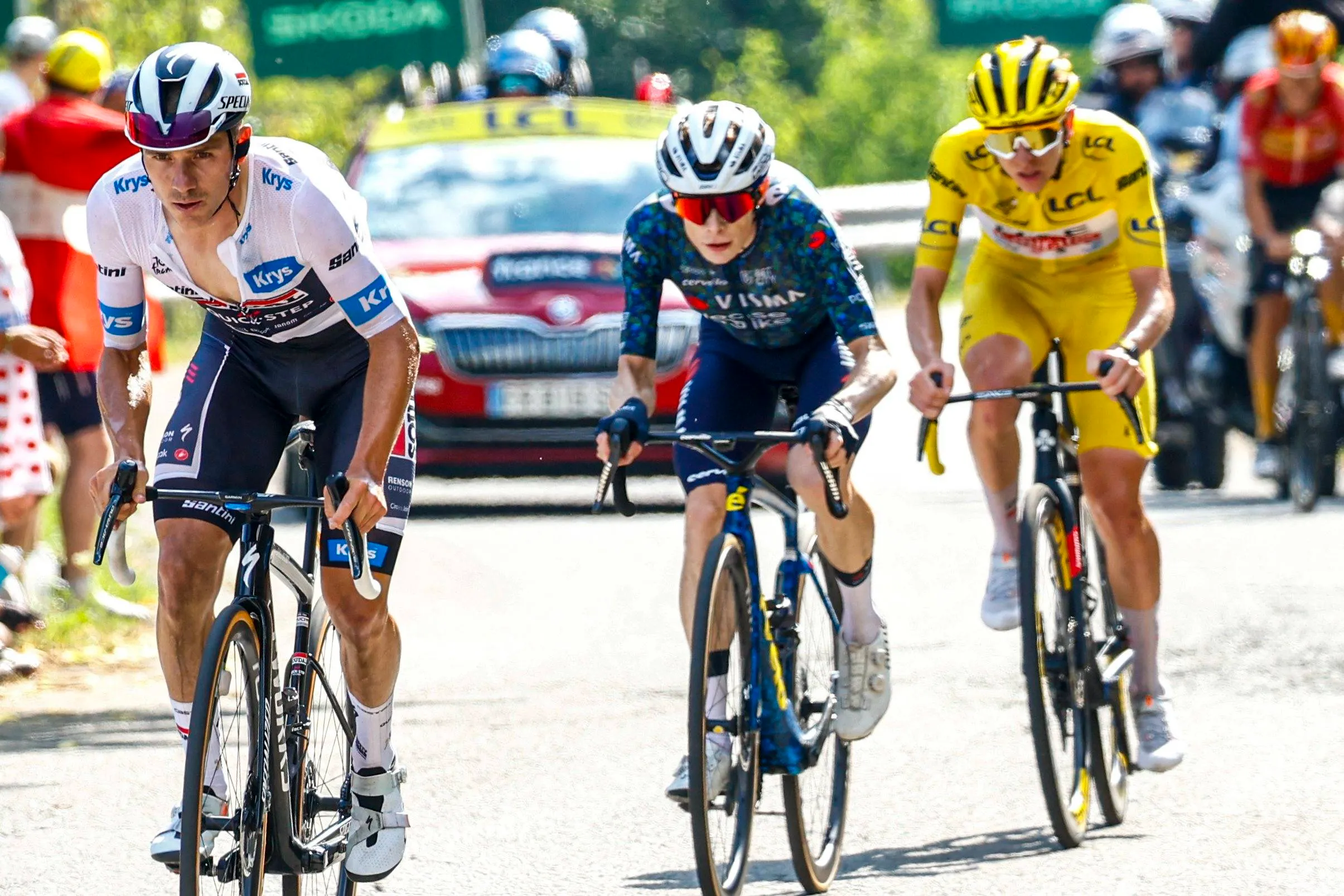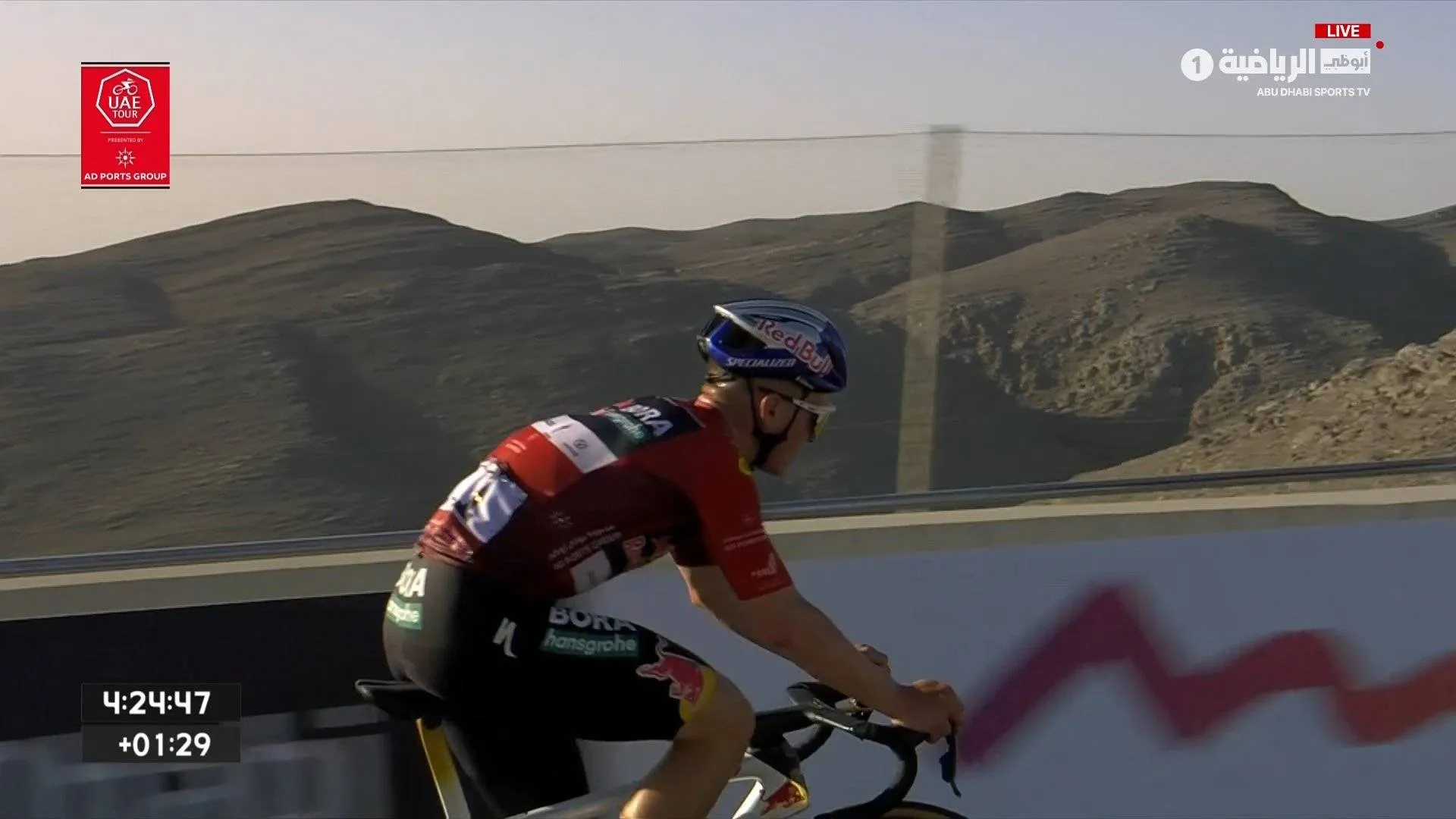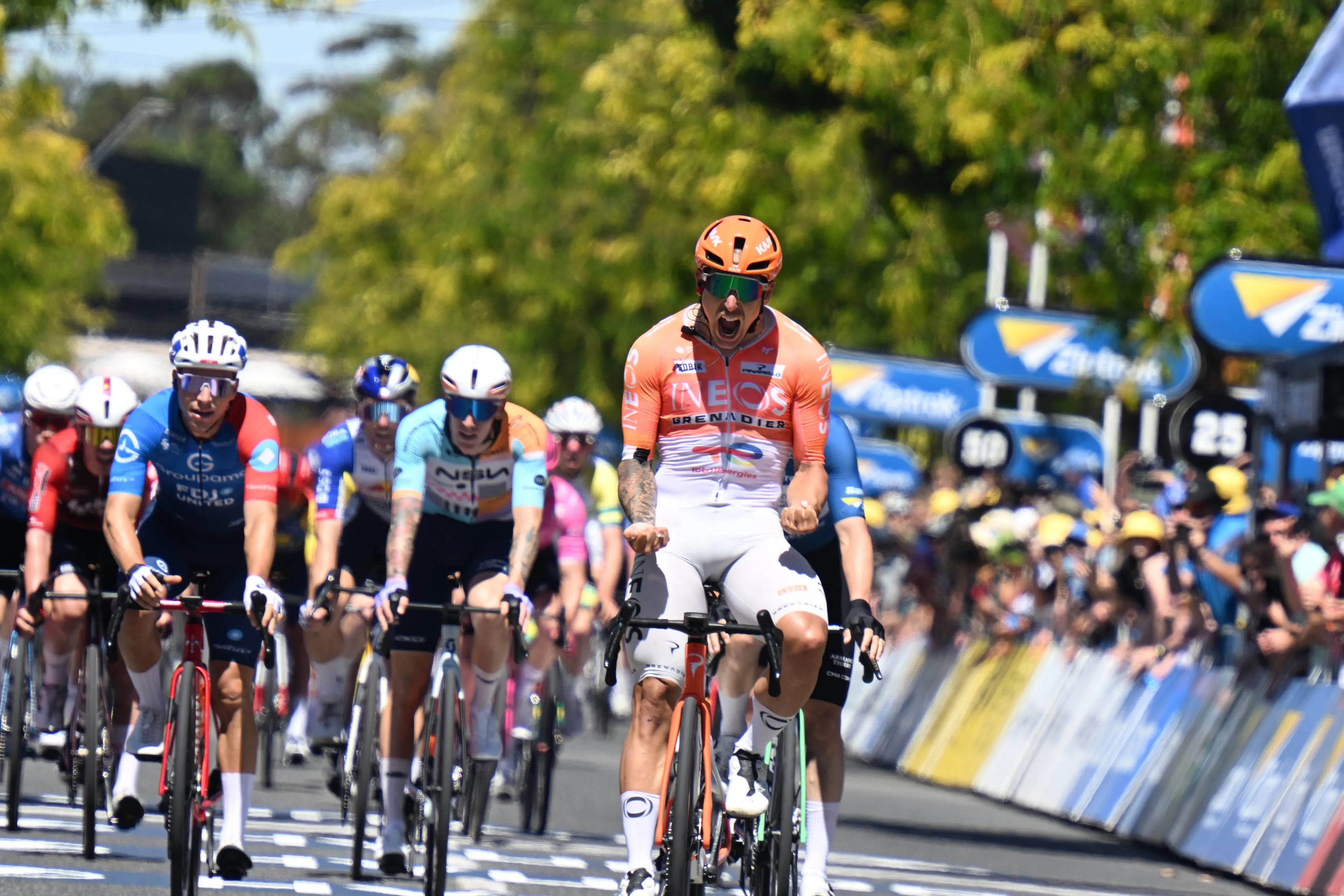French pundit suggests "Merckxism Syndrome" and "Armstrongian Trauma" prevent us from enjoying the greatness of Tadej Pogacar
CyclingMonday, 14 October 2024 at 23:00

Triple crown and two monuments along the way. With 25 victories, Tadej Pogacar's season could've been hardly any better. And it's not just any wins, dominating with monstrous solo rides including 80km raid at Strade Bianche, 50km solo at Lombardia and finally the spectacular 100km to go attack at World Championships. Naturally, bad mouths speak of doping and compare the Slovenian to controversial figures like Eddy Merckx and Lance Armstrong. Meanwhile others try to enjoy the greatness they're witnessing.
"All behavioral, psychosociological and neurological studies will confirm it, the cycling spectator is eternally dissatisfied. The reason for this state is now known, it is the result of the association of two serious pathologies, one called 'Merckxism Syndrome' and the other called 'Armstrongian Trauma'," Marc Fayet explains in his Cyclism'Actu column.
"The first named, inherited from the time when a famous cannibal raged in the last century who left only a few crumbs of events to his opponents (especially those in which he did not participate) and the second, successive to the unchallenged reign of an American serial cheat who managed to abuse his world for about fifteen seasons."
Read also
Suddenly Merckx accelerated and let go of his last breakaway companions
"From these two eras was born first of all among the reporters-rapporteurs a prose based on the expression of a weariness of having to relate day after day, week after week and season after season the same story each time beginning invariably with 'Suddenly Merckx accelerated and let go of his last breakaway companions'."
So far, Pogacar's dominance has been very Merckx-esque. So much that many would refuse to accept someone winning so easily: "It would seem that in 2024, these two dormant diseases will suddenly emerge to become one and will take over the entire cycling world, preventing us from properly enjoying the advent of the greatest cycling champion in the world," Fayet points out.
It is true that the boy who smiles while pedaling has a disconcerting ease in exercising his sport, which is much more like a game than a stake. It is also true that when he decides to leave, journalists cannot help but repeat the formula of their predecessors from the last century: 'Suddenly Pogacar accelerated and let go of his last breakaway companions'."
Read also
claps 1visitors 1
Just in
Popular news
Latest comments
- Great champion Remco but his profile is more suitable for Ardennes-like races and tour with no very hard climbs. Not only Tadej and Vingegaard, there are a lot of younger cyclists (del Toro, Ayuso, maybe Seixas, Nordhagen and others) that will soon be big GC boys.
 maria2024202418-02-2026
maria2024202418-02-2026 - Evenopoel 1st real test, and he failedZamorano18-02-2026
- Remco is not the natural climber that riders like Tadej or Jonas are, no matter how much he trains and prepares for it. Yes, you can TT your way up moderately steep hills, but when the gradient gets super steep, he just can't keep up.
 santiagobenites18-02-2026
santiagobenites18-02-2026 - So against the better riders and a long mountain, Remco cracked. Sorry but way away from Pog and Jonasabstractengineer18-02-2026
- “I was portrayed as the devil" Bruyneel was really a talented team manager. His minor flaws: "coordinated, well-funded, and sophisticated doping regime" "hand-in-hand in implementing the team-wide doping programme" "was involved in trafficking and administering prohibited substances and methods, including EPO, blood transfusions, testosterone, human growth hormone, and cortisone. Teammates testified that nothing significant happened without Bruyneel's knowledge and approval." "fostered an environment where doping was considered a "fact of life" and necessary for success, effectively making it a condition of survival on the team. He also participated in or assisted with the cover-up of positive tests and doping violations." Those quotes show Bruyneel's true talent.Cyclingnut18-02-2026
- Fed up hearing "their" voicesslappers6618-02-2026
- When you join Ineos , learning , time , no pressure go out of the windowabstractengineer18-02-2026
- The UCI screws up againcaptmike18-02-2026
- No matter what people say - I'll watch it. And I bet all the complainers will do it too....averagecyclist18-02-2026
- Exactly what I'm thinking about it. Moreover Van Glis had a lot of time to rethink his situation but decided to stay where he was.averagecyclist18-02-2026
Loading
3 Comments









